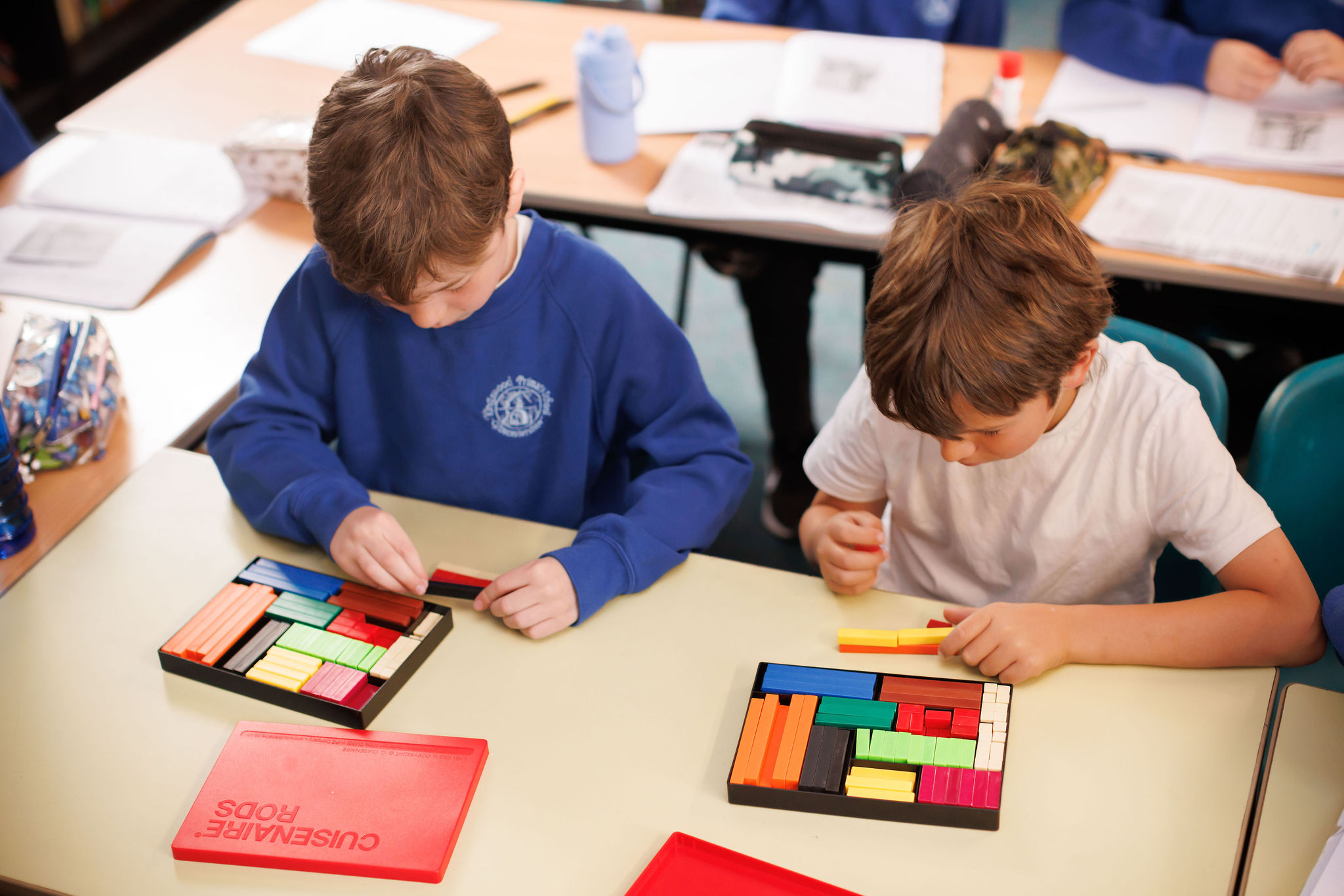Mathematics

Mathematics at Kingswood Primary School
Mathematics is an important creative discipline that helps us to understand and change the World. We want all pupils at Kingswood Primary School to experience the beauty, power and enjoyment of mathematics and develop a sense of curiosity about the subject.
We aim for all pupils to:
+ Become fluent in the fundamentals of mathematics so that they develop conceptual understanding and the ability to recall and apply knowledge rapidly and accurately.
+ Solve problems by applying their mathematics to a variety of problems with increasing sophistication, including in unfamiliar contexts and to model real-life scenarios.
+ Reason mathematically by following a line of enquiry and develop and present a justification, argument or proof using mathematical language.
+ Have an appreciation of number and number operations, which enables mental calculations and written procedures to be performed efficiently, fluently and accurately.
Our teaching at Kingswood Primary School focuses on developing secure and deep understanding. We believe that learning needs to be broken down into small, manageable steps that allow children to make incremental progress. Teachers make the learning accessible for all pupils by offering our children the chance to use practical, concrete resources throughout lesson sequences, where appropriate, to support their understanding alongside using pictorial or abstract recordings when children are ready to do so. Children use stem sentences as a frame for explanation and to conjecture and generalise themselves having explored mathematical structures and patterns.
To ensure the basic skills are embedded, children have access to sessions that focus on fact recall.
Children are taught strategies for solving problems to help them make sense of unfamiliar problems and problem-solving sessions allow them to work collaboratively and creatively on a wide array of problem types.
Assessment is key to ensuring the curriculum is pitched accurately for pupils; post-assessments are completed at the end of each term which inform teachers of those children who need further support.
In all year groups we implement our Mathematics Curriculum with the “Can Do Maths” programme, which provides teachers with a clear, progressive overview of Maths lessons to be taught over the course of each academic year (in line with the National Curriculum objectives). Strategies, methods and representations are mapped out to ensure that the Maths curriculum is progressive and that pupils build upon knowledge previously acquired.
Teachers design and sequence their lessons carefully; planning and choosing representations which expose the structure of the Maths being taught. This empowers pupils to develop a deep understanding of the concept, whilst allowing teachers to address any misconceptions which may arise. End of term ‘Remember It’ assessments provide teachers with a clear picture of what exactly their pupils have remembered.
Regular ‘Deliberate Practise’ sessions are used to support pupils in transferring ideas from their working memory to their long-term memory. These sessions do not introduce any new concepts; instead, it is an opportunity for children to revisit, embed and build upon previous learning.
Whilst we maintain the belief that everybody ‘can do’ Maths, we do recognise that there are a variety of obstacles that some children may face on their journey to understanding. To empower these children to succeed, they may receive targeted daily support to help embed a concept that they are struggling with.
We use a balanced approach for children to learn number facts and times tables, teaching and rehearsing them both conceptually and through repetition and low stakes testing.
|
Year Group |
|||
|
EYFS |
|||
|
Year 1 |
|||
|
Year 2 |
|||
|
Year 3 |
|||
|
Year 4 |
|||
|
Year 5 |
|||
|
Year 6 |
|||
|
Year Group |
Sequence of Learning |
Knowledge Organisers |
Factual Fluency |
|
EYFS |
|||
|
Year 1 |
Number Facts Factual Fluency |
||
|
Year 2 |
Number Facts Factual Fluency |
||
|
Year 3 |
Times Tables Factual Fluency |
||
|
Year 4 |
Times Tables Factual Fluency |
||
|
Year 5 |
|
||
|
Year 6 |
|






